Tips For Cleaning Walls
Share Yours And Read Others
Here are general tips for cleaning walls that become dusty or dirty with time, plus a roundup of tips for removing many types of marks from walls, like crayon, markers, and more.
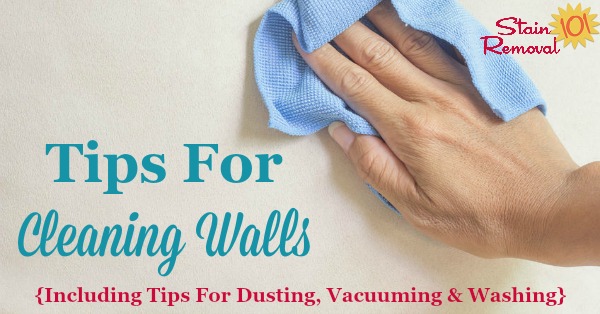
How You Clean Walls Depends On What Type Of Paint Is On Them
This page is focused on painted walls, and not those that are wallpapered or that are covered with an upholstered fabric. But not all painted walls are the same, which is one thing that makes it more difficult to give hard and fast information on how to clean them. But here's what you need to know to make sure you are getting yours cleaned safely and effectively.
Both the paint color, and the type of paint on the wall makes a huge difference on how it's cleaned.
The most common type of interior paint is flat latex paint, and unfortunately, it does not normally do well when washed. Instead, when walls pained with flat paint are washed the detergents and water often leave behind streaks and spots that look just as bad, or worse, than what you were trying to clean up. This is especially a problem on dark colored paints.
So what should you do in these situations? If you've just got dusty walls it is simpler, and actually will turn out better, for you to dust or vacuum them regularly, as will be discussed in more detail below. If, on the other hand you've got lots of scuff marks, or heaven forbid, a child has colored or marked on the wall, you can try the tips below, but it may be that you need to repaint. That's a lot of work, but it may sometimes be the least work necessary to actually make the space look good again.
These days some paint manufacturers do make scrubbable latex paints. If you've got children, or otherwise suffer from dirty walls frequently for whatever reason, when you're choosing paints I would suggest using one of these. It can save you a lot of headaches and keep you from needing to repaint as frequently.
Paints that respond better to washing include semigloss, high-gloss latex, and oil-based paints. These paints are more often chosen for kitchens and bathrooms, specifically because we all know those are the walls that more frequently need some washing.
Tips For Vacuuming & Dusting Walls
Most walls don't need to be washed, but instead merely get dusty with time and periodically need the dust removed. Therefore, about once a year (I suggest when doing your spring cleaning) you should thoroughly dust or vacuum your walls.
Vacuuming walls is pretty easy, as long as you have the right equipment. All you need is a vacuum with a dust brush attachment (see the picture to the left to know what it looks like), and if possible, a long wand to make it easier to reach the top of the wall without having to also life the vacuum cleaner off the ground.
You can find all kinds of vacuum parts and accessories here, on Amazon.com, which can help you get the right parts if you don't currently have them. Just add your model into the search bar first, to make sure you find the part that works for your current vacuum cleaner.
The bristles on the vacuum attachment will loosen the dust from the wall and allow the vacuum to suck it up.
Start at the top of the wall and move the vacuum attachment down the wall, careful not to push to hard so you don't scrape the attachment, and work from top down strokes.
Along with vacuuming, you can dust your walls using a duster. To make it as easy on yourself as possible I suggest using a duster with an extendable handle that allows you to more easily reach the high places without needing to use a ladder.
Ceiling Cleaning Extendable Dusters {Referral Links}

In addition, if needed, use a long handled duster to more frequently deal with any cobwebs that are accumulating between more through cleanings.
How To Wash Walls
As mentioned above, some walls, especially in the kitchen and bathroom, may need more than a dusting but need to be cleaned to remove the water spots and sprays that happen in bathrooms, or the greasy build up that can happen in kitchens.
Before you begin washing any wall you need to test, first, in an inconspicuous area and make sure your wall is washable. You don't want a big water spot or mark in the middle of your wall, after all.
You do this in the same way that you test to see if your ceilings are washable (see the instructions here for full details).
Once you know your walls can be washed, I suggest using an all purpose cleaner or, for especially greasy build up, a degreaser (that does not contain solvents) to wash your walls.
Be sure to follow the dilution instructions on the cleaner you've chosen, and also be sure to keep the sponge or cloth you're using to apply the cleaner damp, but not soaking. You don't want to wet your wall more than necessary. Then, rinse the wall again with another damp sponge to remove excess cleaner.
Use A Dry Sponge On Walls That Can't Be Washed But Are More Than Merely Dusty
Sometimes walls get more than just dusty, but they do not respond well to washing. What can you do in those instances? Try a dry sponge. These are products that are designed to clean hard surfaces that do not react well to water, and are made of a type of foam. (Dry sponges are different than a Magic Eraser which actually acts as an extremely fine sandpaper, and can be great for removing certain marks from walls when used in moderation.)
Using a dry sponge is easy. Just rub the sponge onto the wall and as the sponge picks up the dirt and soil, and the surface gets too dirty, all you have to do is rub the sponge with sandpaper, or slice the dirty portion of the sponge off with a knife, exposing a new clean area of sponge, and then begin cleaning again. As you can tell from this description these sponges aren't made to last, but get smaller with use until they're gone.
Ceiling Cleaning Dry Sponge Cleaners {Referral Links}
How To Remove Specific Types Of Marks On Walls
Sometimes accidents happen, and you don't just get general grime, or scuff marks on your walls with time, or a greasy build up, but instead, you get a specific type of mark on your wall. Some of the most common of these are crayon and markers.
There are even more tips below in the round up, including other types of marks as well as product recommendations from readers that worked well on specific stains and marks, but here's the two most commonly requested articles about cleaning specific marks from walls:
Lots of tips and tricks, product recommendations, and results as reported by reader, for removing crayon from the walls.
Tips and product recommendations for how to remove permanent marker from walls.
Tips From Other Readers {Plus Share Your Own}
Do you spend a lot of time cleaning your home and possessions? If so, you can use some good tips to help you get these chores done, so you can have some fun! Here are tips I've collected from readers like you, and from around the web to help you with these tasks.
Here are the tips submitted so far:
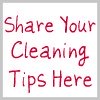 Share Your Tips Here |
 Crayon Removal {Multiple Tips} |
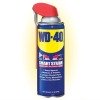 WD-40 To Remove Crayon |
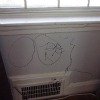 Permanent Marker Removal {Multiple Tips} |
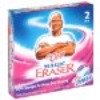 Remove Soot With Magic Eraser |
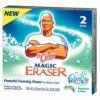 Magic Eraser For Removing Fingerprints, Drawings, Dirt & Crayons |
 Mr. Clean Eraser For Fingerprints & Marks |
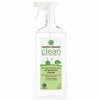 Martha Stewart All Purpose Cleaner Spray Cleaned Off Grime |
 Magic Eraser Removing Marks From Painted Walls |
 Mr. Clean Magic Eraser To Remove Crayon & Dirt |
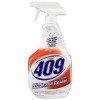 Formula 409 For Getting Dirt & Grime Off |
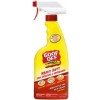 Used Goof Off Remover For Permanent Marker Removal |
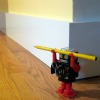 How To Remove Pencil Marks Easily |
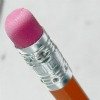 Remove Crayon With A Pencil Eraser |
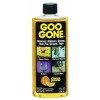 Goo Gone Removed Adhesive Residue But Left Greasy Spot Behind |
 Stater Brothers All Purpose Cleaner For Walls Dirty From Dogs |
 Homemade Cleaning Recipe For Removing Crayon |
 Why You Should Only Use Magic Eraser On White Walls, Not Colored Ones |
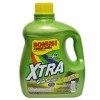 Using Cheap Laundry Detergent To Remove Grease |
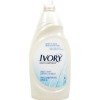 I Use Ivory Liquid Dish Soap |
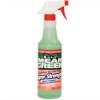 Mean Green Cleaner For Nicotine Stains |
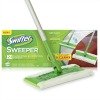 Swiffer Sweeper Dry Cloths For Removing Cobwebs |
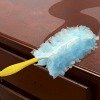 Swiffer Duster For Removing Cobwebs |
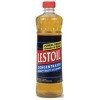 Lestoil For Removing Crayon Without Scrubbing |
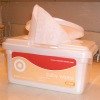 Remove Grime & Drawings With Baby Wipes |
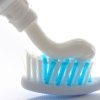 Toothpaste To Remove Crayon |
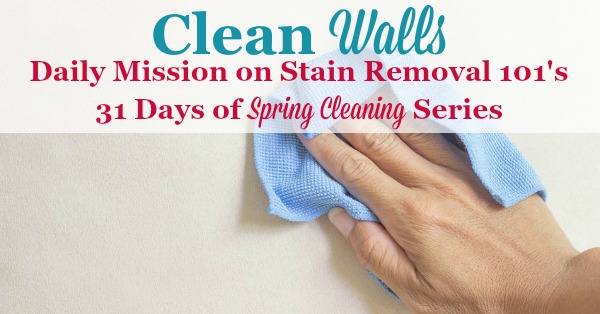
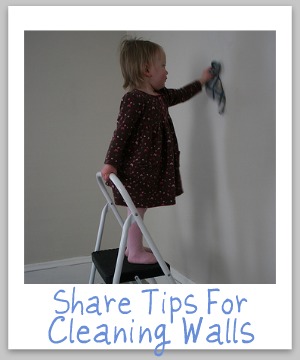
Normally we don't think about cleaning walls too often, but if something gets on your wall, such as your child coloring on it with crayon or markers then all of a sudden you need to clean it up.
Of course, more things that just art supplies can dirty your wall, including scuff marks, soot, or almost anything else.
If you've successfully cleaned something from your wall, I would love for you to tell me about it below, so we can all learn what works and what doesn't.
Tell me what you were cleaning off, if you know, and also whether your wall was painted, wallpapered, or whatever else so the tip is as useful as possible for everyone else who will read it.
Share Your Wall Cleaning Tips Here
Walls often need cleaning. So share your tips with me for how you do it.
If you like to use a particular type of cleaner, either homemade or purchased, or special cleaning equipment to get the job done well, please tell me about that too.
Finally, pictures aren't required, but are encouraged, especially if it helps show how you do something or the good results you had from using your tips.
Top collage photo credits include the bottom left photo of an O-Cedar Dual-Action Microfiber Duster Set with Extendable Handle, and the bottom right photo of the collage of an Eurow Electrostatic Duster. The bottom photo on the page by abbybatchelder
There are affiliate links on this page, and if you purchase a product through them I receive a small commission. Purchasing through my links costs you nothing extra, but helps support the free information provided on this site and my family. To learn more please see my product review disclosure statement.
Thanks For Visiting My Website: Grab Your Free Gift!

Hi, I'm Taylor, a busy mom with 3 kids, so I have lots of hands on experience with house cleaning, laundry and my fair share of spots, spills and other messy catastrophes. Thanks for visiting my site.
I update the website all the time with tips, tutorials, cleaning recipes, reviews of products from readers like you, and tests I've done on various cleaners, removers and laundry supplies.
I'd love to give you a gift! When you subscribe to my free weekly newsletter you will receive a free printable laundry stain removal chart that you can reference as needed.
I hope you enjoy this gift, and stop by again soon!
Related Pages You May Enjoy
100's Of House Cleaning Tips & Tricks For Busy Moms
Homemade Cleaners Recipes From Readers
Go From Tips For Cleaning Walls To Home Page
CAUTION: This website is provided for informational purposes only. It is provided as is, without warranties or guarantees. Some stains and messes just won't come out, and are permanent. Further, some cleaning methods can harm your item, so if what you want to clean or launder is sentimental or expensive call a professional. See disclaimer of liability for more information.
Popular Tips
Let's Stay Connected!
Get Free Email Updates
(and get a FREE printable)
Related Pages
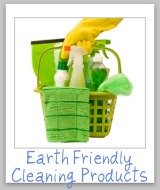 Eco-Friendly Cleaners: Which Brands Work Best?
Eco-Friendly Cleaners: Which Brands Work Best?
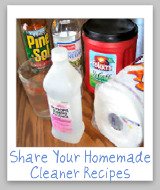 What Are Your Fave Cleaner Recipes?
What Are Your Fave Cleaner Recipes?
 Visit Household Management 101
Visit Household Management 101
 Visit Home Storage Solutions 101
Visit Home Storage Solutions 101
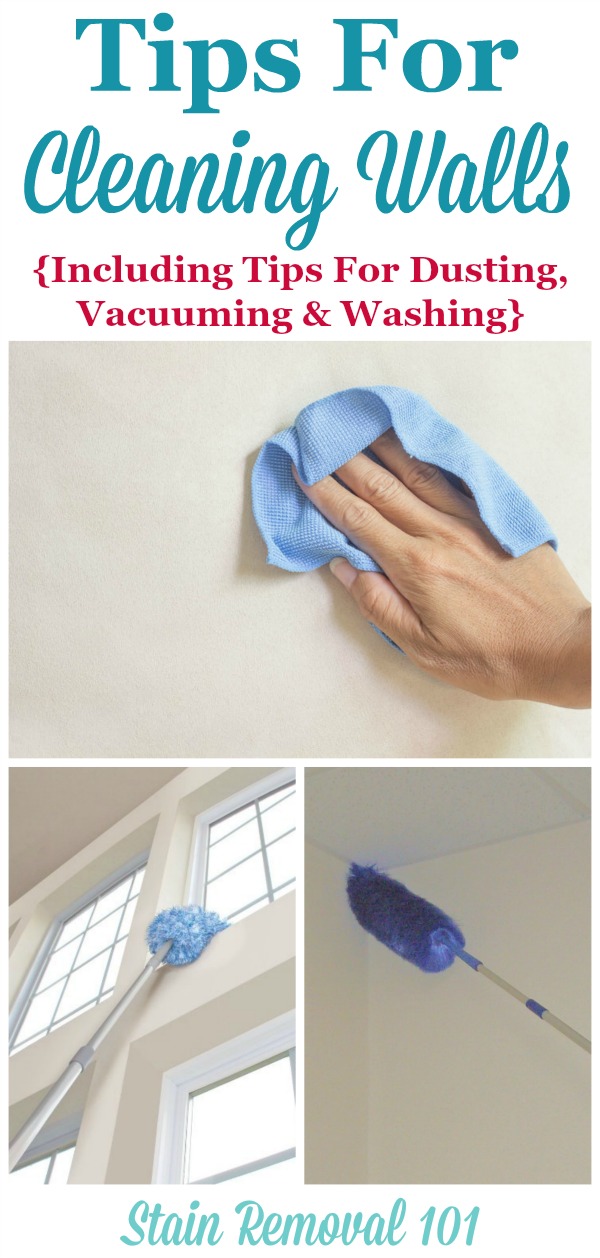

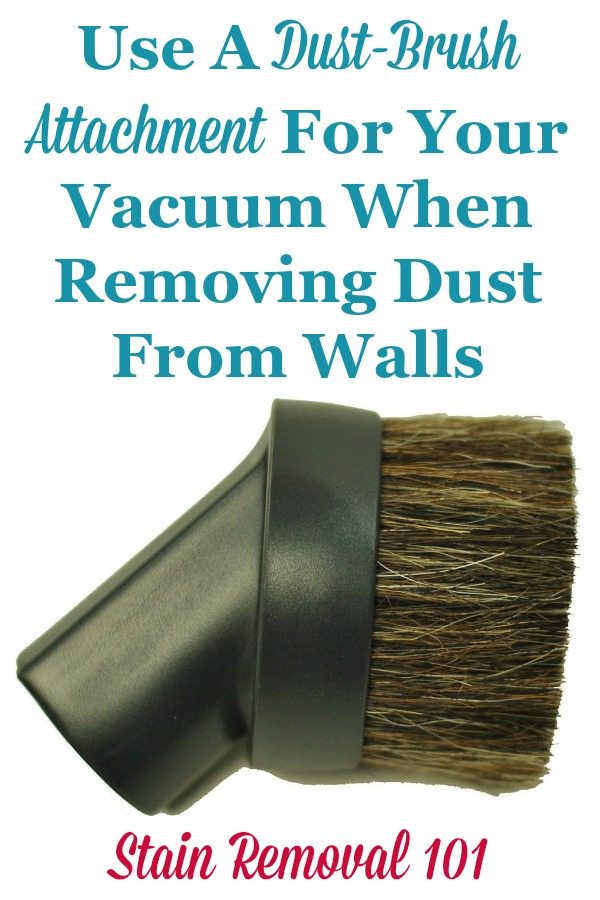
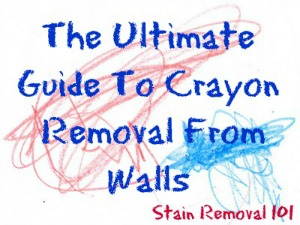
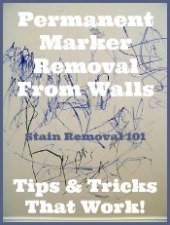
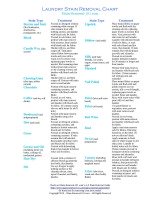
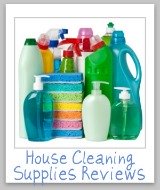
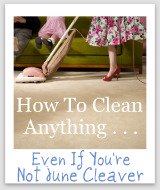
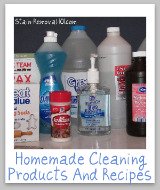
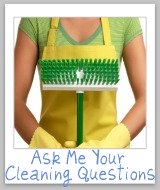
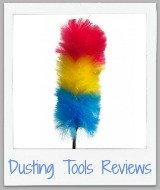
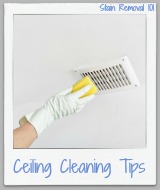
Share Your Comments, Tips & Ideas